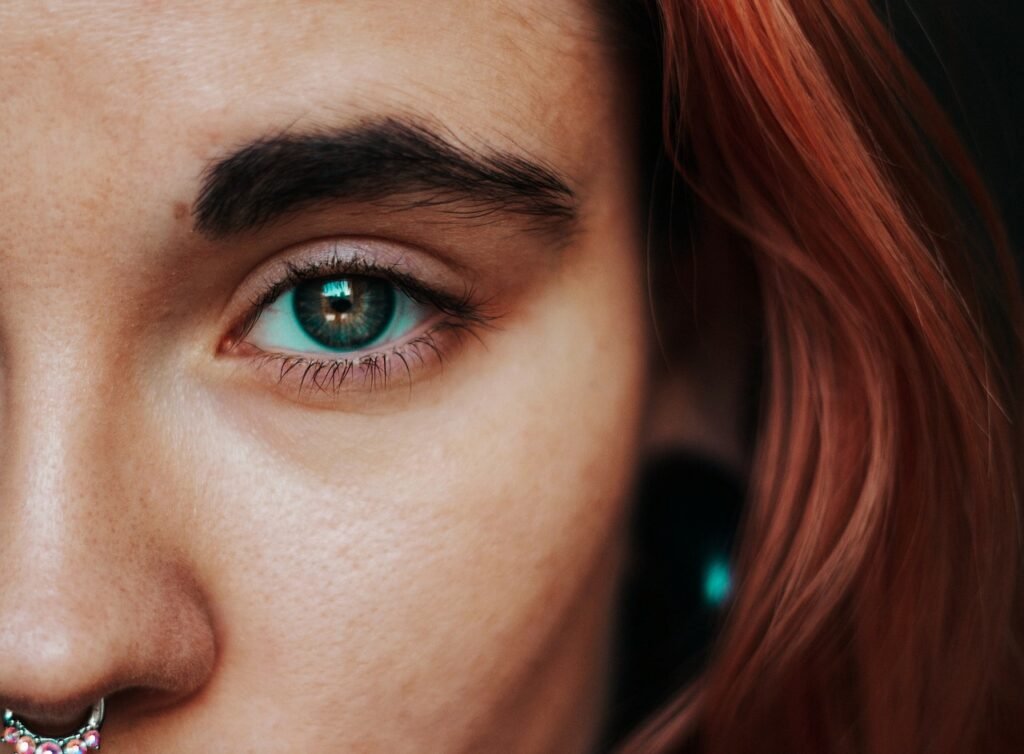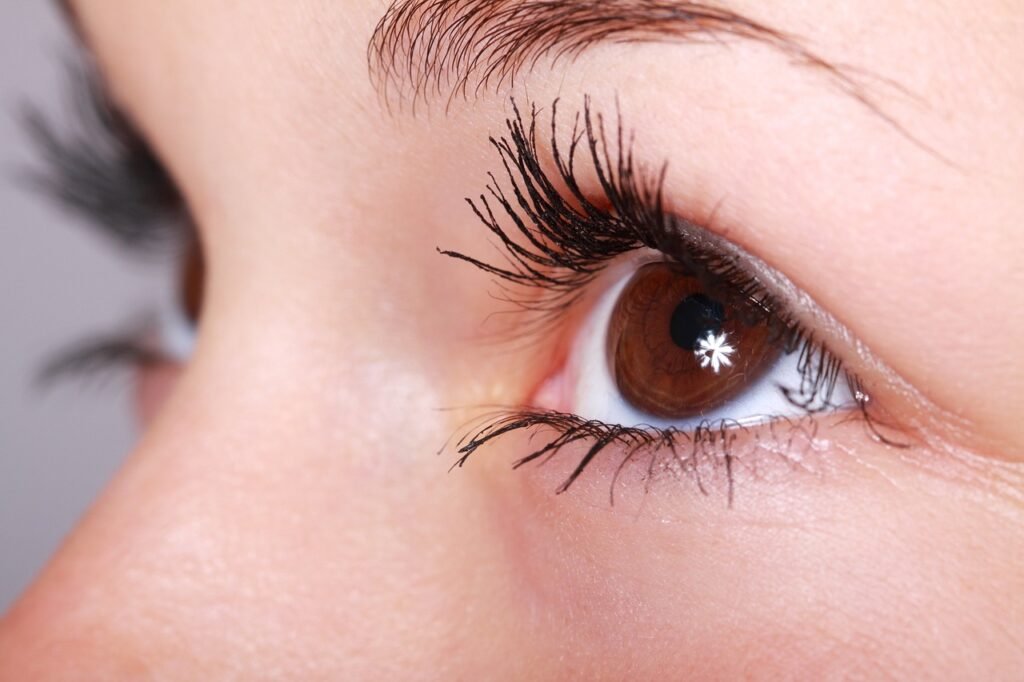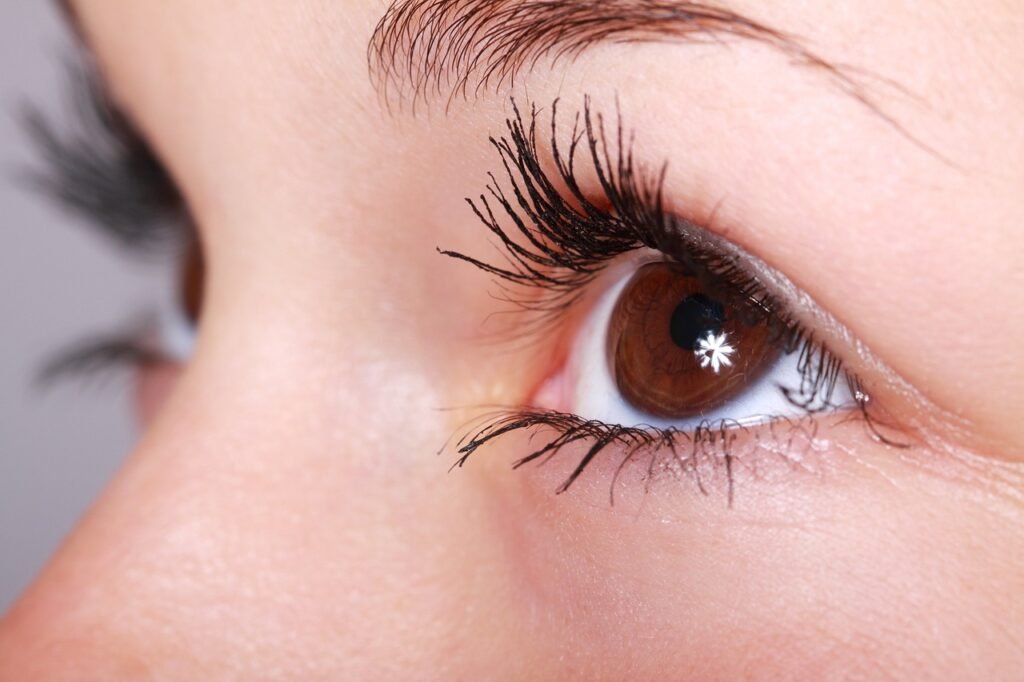Pictures of Puffy Eyes from Hypothyroidism: A Comprehensive Guide
Introduction
Hypothyroidism, a condition described by an underactive thyroid organ, influences a great many individuals around the world. Among its numerous side effects, puffy eyes stand apart as an especially recognizable and upsetting issue. This far-reaching guide dives into the association between hypothyroidism and puffy eyes, investigating the causes, side effects, medicines, and preventive measures. Through an itemized assessment and genuine models, this article aims to give an intensive comprehension of how hypothyroidism can prompt puffy eyes and how this can be dealt with this condition really.

Understanding Hypothyroidism
What is Hypothyroidism?
Hypothyroidism happens when the thyroid organ, arranged in the neck, fails to make adequate proportions of thyroid synthetic compounds, primarily thyroxine (T4) and triiodothyronine (T3). These synthetics play a huge part in controlling the body’s processing, influencing all that from heartbeat to inward intensity level. At the point when thyroid chemical levels are low, the body’s metabolic cycles are delayed down, prompting different side effects, including puffy eyes.
Puffy Eyes and Hypothyroidism
The Connection Between Hypothyroidism and Puffy Eyes
Puffy eyes, otherwise called periorbital edema, are a typical side effect of hypothyroidism. This enlarging around the eyes happens because of liquid maintenance and is in many cases one of the early indications of thyroid brokenness. Understanding the components behind this side effect can help in perceiving and overseeing it really.
Why Does Hypothyroidism Cause Puffy Eyes?

- Fluid Retention: Hypothyroidism tones down the body’s processing, affecting kidney ability and provoking fluid support. This overflow fluid will in every day accumulate in the tissues around the eyes, causing puffiness.
- Myxedema: In outrageous occasions of hypothyroidism, a condition called myxedema can occur. This remembers the assortment of mucopolysaccharides for the skin, provoking thickening and growing.
- Reduced Lymphatic Drainage: Hypothyroidism can prevent the lymphatic structure, which is responsible for exhausting overflow fluid out of tissue
Hypothyroidism Can Be Caused by Several Factors
Hypothyroidism, a condition where the thyroid organ doesn’t convey a sufficient number of thyroid synthetics, can have different causes. This condition impacts different actual cycles and can incite an extent of incidental effects, including shortcoming, weight gain, and noticeably, puffy eyes. Understanding the variables that add to hypothyroidism can help in its counteraction and the board.
Autoimmune Disorders
One of the essential drivers of hypothyroidism is immune system problems, especially Hashimoto’s thyroiditis. In this condition, the body’s safe framework erroneously goes after the thyroid organ, prompting irritation and decreased chemical creation. This resistant framework response can cause different secondary effects, including puffy eyes in light of the get-together of mucopolysaccharides in the tissues around the eyes.
Iodine Deficiency
Iodine is fundamental for the creation of thyroid chemicals. A lack of iodine can prompt hypothyroidism. This is more normal in regions where iodine isn’t sufficiently present in the eating routine. The absence of adequate thyroid chemicals can prompt the maintenance of liquid in the body, adding to puffy eyes.
Surgical Removal of the Thyroid
Careful evacuation of the thyroid organ, frequently vital in instances of thyroid disease or extreme hyperthyroidism, brings about hypothyroidism. Without the thyroid organ, the body can’t deliver thyroid chemicals, prompting different side effects, including liquid maintenance and puffy eyes.
Radiation Therapy
Radiation treatment used to treat tumors of the head and neck can harm the thyroid organ. This harm can bring about diminished chemical creation and hypothyroidism. The resulting hormonal irregularity can make the body hold liquids, prompting puffy eyes.
Medications
Certain prescriptions can slow down thyroid chemical creation. Drugs like lithium, used to treat mental circumstances, and amiodarone, utilized for heart cadence problems, can incite hypothyroidism. These drugs can disturb the typical capability of the thyroid organ, prompting side effects like puffy eyes.
Congenital Hypothyroidism
A few people are brought into the world with an underactive thyroid organ. This condition, known as inborn hypothyroidism, can prompt formative issues in the event that is not treated early. Side effects in babies can incorporate puffy eyes, which might demonstrate the requirement for thyroid capability testing and treatment.
Pituitary Disorders
The pituitary organ manages the thyroid organ through the arrival of the thyroid-animating chemical (TSH). Issues of the pituitary organ can prompt deficient TSH creation, bringing about hypothyroidism. The hormonal awkwardness brought about by this brokenness can appear as puffy eyes because of liquid maintenance.
Hypothyroidism can be achieved by various factors, including safe framework issues, iodine insufficiency, cautious ejection of the thyroid, radiation therapy, solutions, inherent conditions, and pituitary issues. All of these causes can agitate the making of thyroid synthetic substances, inciting secondary effects, for instance, weariness, weight gain, and puffy eyes. Perceiving these basic causes is significant for viable determination and treatment, assisting with dealing with the condition and easing its side effects.
Symptoms of Puffy Eyes from Hypothyroidism
Puffy eyes are a typical and recognizable side effect of hypothyroidism, a condition described by an underactive thyroid organ. The thyroid organ, situated in the neck, is liable for delivering chemicals that manage digestion. At the point when the thyroid doesn’t deliver an adequate number of chemicals, different physical processes are delayed down, prompting a scope of side effects, including puffy eyes. Understanding the side effects and fundamental reasons for puffy eyes in hypothyroidism can support early identification and powerful administration of the condition.
Fluid Retention
One of the fundamental purposes behind puffy eyes in hypothyroidism is fluid upkeep. Hypothyroidism tones down processing, which can provoke an improvement of fluids in the body. This fluid gathering every now and again occurs in the tissues around the eyes, causing recognizable puffiness and enlarging.\
Myxedema
Myxedema is an outrageous sort of hypothyroidism that can achieve gigantic extensions of tissues, including those around the eyes. This condition remembers the total of mucopolysaccharides in the skin, which attracts water and prompts extension.
Fatigue and Puffy Eyes
Weariness is a trademark side effect of hypothyroidism. The consistent sensation of sleepiness and absence of energy can fuel the presence of puffy eyes. At the point when the body is exhausted, it will in general hold more liquid, which can collect around the eyes, making the puffiness more observable.
Facial Swelling
Hypothyroidism can cause general facial swelling, which often includes the eye area. The overall puffiness of the face, combined with specific swelling around the eyes, gives a characteristic appearance associated with hypothyroidism. This swelling is due to the slowed metabolism and fluid retention typical of the condition.
Dry Skin and Puffy Eyes
Dry skin is one more side effect of hypothyroidism that can add to puffy eyes. At the point when the skin around the eyes becomes dry and less versatile, it can show up more enlarged and puffy. The mix of liquid maintenance and dry skin can make the puffiness more articulated and awkward.
Weight Gain
Weight gain is a typical side effect of hypothyroidism and can by implication lead to puffy eyes. As the body puts on weight because of a slower digestion, there is an expanded propensity for liquid maintenance, remembering for the tissues around the eyes. This can upgrade the puffiness and expand in the eye region.
Sluggish Circulation
Hypothyroidism can lead to sluggish circulation, which means that blood and lymphatic fluids move more slowly through the body. Poor circulation can cause fluids to pool in certain areas, including around the eyes, leading to puffiness and swelling.
Treating Puffy Eyes from Hypothyroidism
Addressing the underlying hypothyroidism is crucial for reducing the symptoms of puffy eyes. This typically involves thyroid hormone replacement therapy to normalize hormone levels. Additionally, certain lifestyle changes and home remedies can help alleviate puffy eyes:
- Cold Compresses: Applying a virus pack to the eyes can diminish expansion and give help from puffiness.
- Elevate Your Head: Laying down with your head raised can keep liquid from collecting around the eyes.
- Hydration: Remaining very much hydrated can assist with lessening liquid maintenance.
- Healthy Diet: Diminishing salt admission can limit water maintenance and decrease puffiness.
- Swelling: Noticeable puffiness around the eyes, particularly in the morning.
- Fatigue: Observable puffiness around the eyes, especially in the first part of the day.
- Weight Gain: General sluggishness and torpidity, as hypothyroidism dials back digestion.
- Dry Skin and Hair: Unexplained weight gain regardless of no adjustment of diet or actual work.
- Cold Intolerance: The skin might become dry and flaky, and hair could thin and become fragile.
- Constipation: Feeling abnormally chilly even in warm conditions.
- Obstruction: Eased back stomach-related cycles can prompt blockage.
- Hoarseness: The voice might become rough because of expanding in the vocal ropes.
Puffy eyes are a typical side effect of hypothyroidism, coming about because of liquid maintenance, myxedema, exhaustion, facial enlarging, dry skin, weight gain, and slow flow. Perceiving these side effects can prompt early analysis and treatment of hypothyroidism, which is fundamental for overseeing puffy eyes and working on generally speaking well-being. Through proper clinical treatment and way of life changes, people with hypothyroidism can successfully diminish the presence of puffy eyes and other related side effects.
Diagnosing Hypothyroidism
Diagnosing hypothyroidism includes a complete methodology that incorporates perceiving side effects, carrying out actual assessments, and leading research center tests. Puffy eyes, a typical side effect of hypothyroidism, can be an early pointer inciting further examination. Here is a nitty gritty outline of the indicative cycle for hypothyroidism, underlining the significance of recognizing puffy eyes.
Medical History and Physical Examination
An exhaustive clinical history and actual assessment are urgent in diagnosing hypothyroidism. During the assessment, the specialist will search for actual signs like puffy eyes, dry skin, and different marks of thyroid brokenness.
Blood Tests
Blood tests are essential for confirming hypothyroidism. The key tests include:
- TSH (Thyroid-Stimulating Hormone): Elevated TSH levels indicate that the thyroid is not producing enough hormones.
- Free T4 and T3: Low levels of these hormones confirm hypothyroidism.
- Antithyroid Antibodies: Testing for antibodies can help diagnose autoimmune thyroiditis, such as Hashimoto’s disease.
Recognizing Symptoms
The initial step in diagnosing hypothyroidism is recognizing its symptoms. Common symptoms include:
- Fatigue and weakness
- Weight gain
- Dry skin
- Hair loss
- Cold intolerance
- Constipation
- Depression
- Memory problems
Among these, puffy eyes are especially perceptible and can act as a noticeable hint that something is out of order. Puffy eyes in hypothyroidism result from liquid maintenance and myxedema, where mucopolysaccharides amass in the tissues around the eyes, causing expansion.
Physical Examination
A medical services supplier will lead an actual assessment to search for indications of hypothyroidism. During this assessment, they will:
- Check for puffy eyes and general facial expansion.
- Inspect the thyroid organ for augmentation or knobs.
- Evaluate skin surface and dryness.
- Assess reflexes, as deferred reflexes can be an indication of hypothyroidism.
- Measure pulse and circulatory strain, as hypothyroidism can cause bradycardia (slow pulse) and low circulatory strain.
Medical History
An exhaustive clinical history is fundamental in diagnosing hypothyroidism. The medical services supplier will ask about:
- Family background of thyroid problems or immune system sicknesses.
- Past thyroid medical procedure or radiation treatment.
- Utilization of meds that can influence thyroid capability (e.g., lithium, amiodarone).
- Side effects experienced and their term, with an emphasis on puffy eyes and other explicit indications of hypothyroidism.
Laboratory Tests
Research center tests are pivotal for affirming the conclusion of hypothyroidism. The essential tests include:
- Thyroid-Stimulating Hormone (TSH) Test: TSH levels are commonly raised in essential hypothyroidism as the pituitary organ delivers more TSH to invigorate the underactive thyroid.
- Free Thyroxine (T4) Test: Low degrees of free T4 demonstrate that the thyroid organ isn’t delivering sufficient thyroid chemicals.
- Free Triiodothyronine (T3) Test: Albeit less normally utilized, estimating T3 levels can be useful, particularly in diagnosing milder types of hypothyroidism.
- Thyroid Antibody Tests: These tests recognize antibodies against thyroid peroxidase (TPO) and thyroglobulin, which are normal in immune system thyroiditis (e.g., Hashimoto’s thyroiditis).
Imaging Tests
In some cases, imaging tests may be used to evaluate the thyroid gland further:
- Thyroid Ultrasound: This imaging technique helps visualize the thyroid gland, detect nodules, and assess its size and texture.
- Radioactive Iodine Uptake Test: This test measures how much iodine the thyroid gland absorbs, helping to differentiate between different types of thyroid disorders.
Differential Diagnosis
Separating hypothyroidism from different circumstances with comparative symptoms is fundamental. Conditions that can impersonate hypothyroidism include:
- Anemia
- Depression
- Chronic fatigue syndrome
- Polycystic ovary syndrome (PCOS)
- Kidney disease
Diagnosing hypothyroidism includes a mix of side effect acknowledgment, actual assessment, clinical history, and lab tests. Puffy eyes, a typical and noticeable side effect of hypothyroidism, can be an early marker that prompts further examination. By completely evaluating these elements, medical care suppliers can precisely analyze hypothyroidism and start suitable therapy, working on tolerant results and personal satisfaction.
Treatment for Puffy Eyes Due to Hypothyroidism

Thyroid Hormone Replacement Therapy
Puffy eyes are a commonplace and much of the time disturbing symptom of hypothyroidism. Compelling administration of this condition includes a mix of clinical treatment, way of life changes, and explicit techniques to diminish eye enlargement.In this part, we will research thoroughly the various prescriptions available for puffy eyes achieved by hypothyroidism.
- Levothyroxine: The most usually suggested drug for hypothyroidism is levothyroxine, a designed sort of the thyroid compound thyroxine (T4). It standardizes thyroid chemical levels, consequently working on metabolic capability and lessening side effects like puffy eyes.
- Dosage: The measurements of levothyroxine are individualized in light of the patient’s age, weight, seriousness of hypothyroidism, and reaction to treatment. Normal blood tests are important to screen thyroid chemical levels and change the measurements on a case-by-case basis.
- Administration: Levothyroxine is ordinarily taken once day to day, ideally in the first part of the day while starving, to guarantee ideal assimilation.
- Monitoring and Adjustment: Ordinary subsequent meetings with a medical services supplier are fundamental for screening thyroid chemical levels and changing prescription doses. Accomplishing the right equilibrium of thyroid chemicals can fundamentally lessen puffy eyes and the different side effects of hypothyroidism.
Managing Puffy Eyes
Notwithstanding chemical treatment, a few systems can assist with overseeing puffy eyes explicitly:
- Cold Compresses: Applying a virus pack to the eyes can assist with decreasing expansion and give quick help. The cool temperature tightens veins and diminishes liquid gathering in the tissues around the eyes.
- How to Use: Absorb a perfect material virus water, wring out the overabundance of water, and spot it over shut eyes for 10-15 minutes. This can be rehashed a few times each day on a case-by-case basis.
- Elevating the Head: Laying down with the head raised can keep liquid from collecting around the eyes during the evening.
- Tips: Utilize an additional pad or a wedge pad to keep the head raised while dozing.
- Hydration: Remaining all around hydrated lessens liquid maintenance and forestalls puffy eyes.
- Recommendations: Drink a lot of water over the course of the day. Hold back nothing 8 glasses of water every day, except change in view of individual requirements and action levels.
- Limiting Salt Intake: Over-the-top salt admission can add to liquid maintenance, fueling puffy eyes.
- Dietary Changes: Decrease the utilization of pungent food varieties, handled food varieties, and bites. Select new natural products, vegetables, and entire grains all things being equal.
- Eye Creams and Gels: Sure over-the-counter eye creams and gels can assist with diminishing puffiness around the eyes. Search for items containing fixings like caffeine, chamomile, or cucumber removal, which have calming properties.
- Application: Apply a limited quantity of eye cream or gel around the eyes, tenderly kneading it into the skin utilizing the ring finger.
Lifestyle Changes
Embracing a sound way of life can uphold generally speaking prosperity and assist with overseeing hypothyroidism and its side effects, including puffy eyes.
- Balanced Diet: Eating an eating routine rich in supplements maintains thyroid ability and all-around prosperity.
- Nutrient-rich foods: Consolidate different natural items, vegetables, lean proteins, whole grains, and strong fats in your eating schedule.
- Iodine: Guarantee sufficient iodine admission, as it is fundamental for thyroid chemical creation. Sources incorporate iodized salt, dairy items, fish, and eggs.
- Selenium and Zinc: These minerals are critical for thyroid ability. Consolidate food assortments like Brazil nuts, sunflower seeds, and shellfish in your eating schedule.
- Regular Exercise: Dynamic work upholds processing and supervises weight, which can facilitate a couple of symptoms of hypothyroidism.
- Exercise Routine: Pull out all the stops with 30 minutes of moderate movement most days of the week. Activities can integrate walking, running, cycling, or swimming.
- Stress Management: Persistent pressure can adversely affect thyroid capability. Integrate pressure-lessening rehearses into your everyday daily practice.
- Stress-Relief Techniques: Attempt yoga, contemplation, profound breathing activities, or care practices to oversee pressure.
- Adequate Sleep: Guarantee you get sufficient quality rest every evening, as unfortunate rest can intensify the side effects of hypothyroidism.
- Sleep Hygiene: Keep a normal rest plan, make a loosening up sleep time schedule, and guarantee your dozing climate is helpful for rest.
Medical Interventions
At times, extra clinical medications might be important to address puffy eyes because of hypothyroidism.
- Diuretics: Diuretics, or water pills, may be prescribed to help with reducing fluid upkeep and reduction extending around the eyes.
- Prescription: Diuretics should simply be used under the course of a clinical consideration provider, as they can have incidental effects and may speak with various remedies.
- Topical Steroids: In examples of outrageous bothering, an expert could support viable steroids to decrease growth and irritation around the eyes.
- Usage: Adhere to the medical services supplier’s guidelines cautiously while utilizing effective steroids to keep away from possible aftereffects.
- Surgical Options: In uncommon cases, careful mediation might be thought of assuming that puffy eyes persevere in spite of different medicines.
- Orbital Decompression Surgery: This technique includes eliminating bone or fat from the eye attachment to make more space for the eyes and lessen strain and enlargement.
Puffy eyes because of hypothyroidism can be successfully made do with a mix of thyroid chemical substitution treatment, explicit methodologies to diminish eye enlarging, way of life changes, and, at times, extra clinical mediations. Customary checking and adherence to endorsed medicines are significant for keeping up with ideal thyroid capability and forestalling the repeat of side effects. By executing these techniques, people with hypothyroidism can altogether work on their personal satisfaction and ease the uneasiness related with puffy eyes. This far-reaching approach guarantees that patients are exceptional to deal with their condition and keep up with general prosperity.
Real-Life Examples: Pictures of Puffy Eyes from Hypothyroidism
Visual examples can help in understanding the impact of hypothyroidism on the eyes. Here are some real-life examples showcasing puffy eyes due to hypothyroidism:
Example 1: Early-Stage Hypothyroidism
In the beginning phases of hypothyroidism, puffiness around the eyes might be unobtrusive however perceptible. Patients could likewise encounter gentle exhaustion and weight gain. [Insert picture of a person with beginning phase hypothyroidism showing slight puffiness around the eyes.]
Example 2: Moderate Hypothyroidism
As the condition advances, the enlarging turns out to be more articulated. Going with side effects like dry skin, balding, and obstruction become more apparent. [Insert picture of a person with moderate hypothyroidism showing more recognizable puffiness around the eyes and extra symptoms.]
Example 3: Severe Hypothyroidism
In extreme cases, puffy eyes can be essentially recognizable, frequently joined by myxedema, where the skin seems enlarged and waxy. Patients may likewise encounter outrageous weakness, melancholy, and memory issues. [Insert picture of a person with serious hypothyroidism showing huge puffiness around the eyes and other extreme symptoms.]
Preventing Puffy Eyes in Hypothyroidism
Regular Monitoring
Ordinary check-ups and blood tests are fundamental for observing thyroid chemical levels and changing drug doses appropriately to forestall side effects like puffy eyes.
Adherence to Medication
Accepting thyroid chemical substitution medicine as endorsed is essential in overseeing hypothyroidism and keeping side effects from declining.
Healthy Lifestyle
Keeping a solid way of life, including a fair eating regimen and ordinary activity, upholds generally speaking prosperity and oversees hypothyroidism really.
Conclusion
Puffy eyes can be a troubling side effect of hypothyroidism, yet understanding the association and going to suitable lengths can assist with dealing with this condition really. Normal observing, adherence to drugs, and way of life changes assume an essential part in forestalling and easing side effects. By perceiving the signs early and looking for suitable treatment, people with hypothyroidism can lead sound, satisfying lives. This guide intends to give extensive data to engage those impacted by hypothyroidism, helping them comprehend and oversee puffy eyes and other related side effects really.
Additional Resources
For those seeking more information on hypothyroidism and puffy eyes, the following resources may be helpful:
- American Thyroid Association (ATA): [Link to ATA website]
- National Institute of Diabetes and Digestive and Kidney Diseases (NIDDK): [Link to NIDDK website]
- Thyroid Foundation of Canada: [Link to Foundation website]
FAQs
Q: Can puffy eyes from hypothyroidism be turned around?
A: Indeed, with proper treatment and way of life changes, puffy eyes from hypothyroidism can be overseen and possibly switched.
Q: How long does it require for thyroid medicine to decrease puffy eyes?
A: The time it takes for thyroid drugs to lessen puffy eyes changes from one individual to another. Some might see improvement within half a month, while others might require a while.
Q: Are there any regular solutions for puffy eyes brought about by hypothyroidism?
Sometimes normal cures like virus packs and lessening salt admission can assist with overseeing puffy eyes, they ought to be utilized related to clinical treatment endorsed by a medical care proficient.
Final Thoughts
Understanding the connection between hypothyroidism and puffy eyes is fundamental for powerful administration. By perceiving the side effects, looking for ideal findings and treatments, and making essential way of life changes, people can fundamentally work on their personal satisfaction. This complete aid intends to give significant bits of knowledge and commonsense exhortation to those impacted by hypothyroidism, assisting them with exploring their excursion towards better well-being and well-being.

